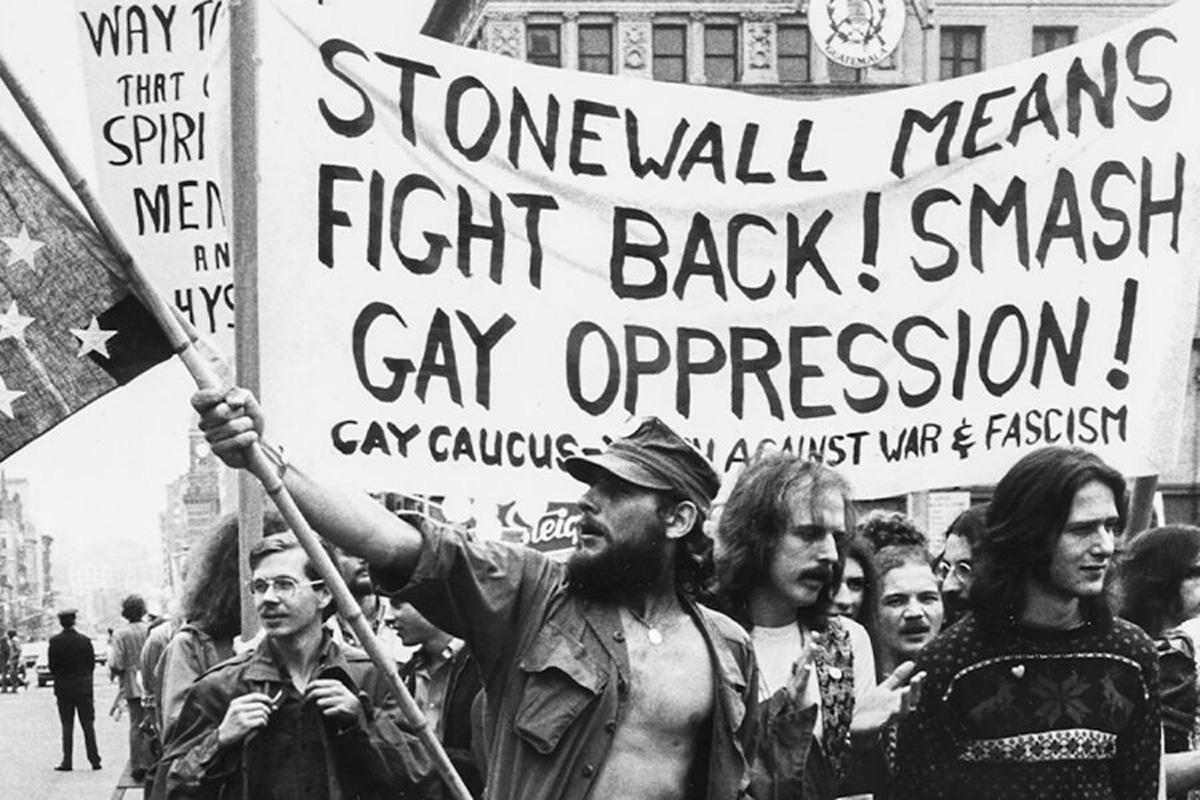By CAROLINE YEZER
June is Pride Month, when many LGBTQ+ communities of the world and their allies celebrate the freedom to love, exist, and express their identity. Pride marches and events happen throughout June, but you may not be aware that they have their roots in the commemoration of the 1969 Stonewall uprisings in New York City.
What was Stonewall?
It seems shocking now, but just 50 years ago, homosexual acts were so criminalized that any business which employed or catered to homosexual people could be raided and shut down by police. In 1969, the Stonewall Inn in Greenwich Village was a haven to gay people, drag performers, and transgendered people. At that time, the late-night gay bars in New York could be open only because they paid the Mafia, who bribed the NYC police. The Mafia had an economic interest in such bars: exposing someone as gay or transgender could mean imprisonment for them, so the Mafia could blackmail the rich or famous people who patronized these bars.
In June of 1969, the NYPD planned several raids with the aim of getting the place shut down for good. This time, the targets fought back, risking capture to free their detained compatriots. The next night the riot became a larger protest; over the next several nights, thousands of homosexual, transgender people and their allies, unafraid and defiant, marched through the streets of New York City.
Gay Pride marches today commemorate the Stonewall uprisings because they mark a sea change. LGBT organizing and activism existed prior to Stonewall, but these uprisings marked the beginning of coordinated LGBT civil rights protests for equality across the nation. The Stonewall protests were inspired by the actions from black communities in Los Angeles and Detroit that same year, against prejudice and police brutality. Stonewall also challenged homophobic stereotypes that defined trans and gay people as weak, and they sparked similar LGBT protests across the nation.
New Mexico Pride
New Mexico was one of the first US states to decriminalize same-sex activities, in 1975. In 2019, the state passed legislation to permit same sex-marriages, provide a “neutral” sex designation alongside male and female, allow gender-neutral bathrooms, and issue corrected birth certificates to transgender people without the requirement that they undergo surgery or other medical operations.
New Mexico’s Pride marches have been virtual during the COVID-19 pandemic. Santa Fe Pride’s Parade this year will be virtual and by car only. In Taos, there are a few events planned—see Taos Pride’s Facebook Page for the most up-to-date information: https://www.facebook.com/taos.pride
.
Author
-

Dr. Caroline Yezer is a cultural anthropologist (PhD Duke University 2007) who has taught anthropology curriculum at College of the Holy Cross and Clark University in Massachusetts.
View all posts



